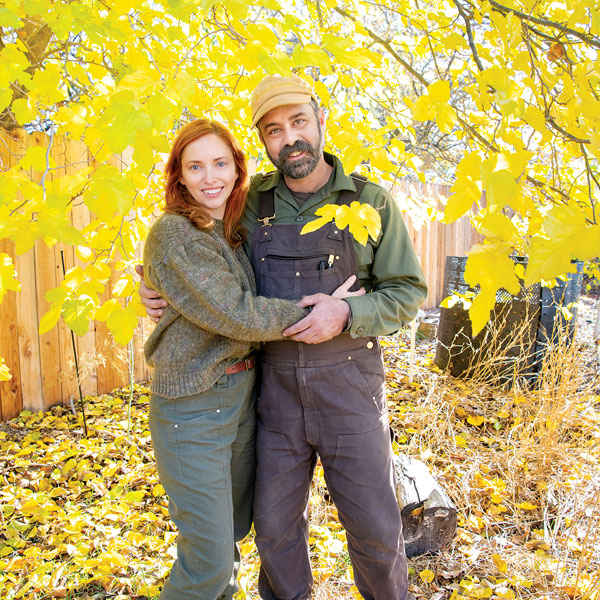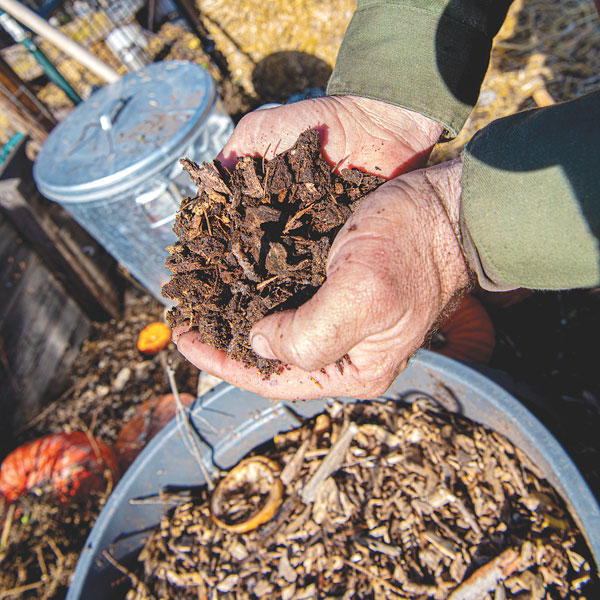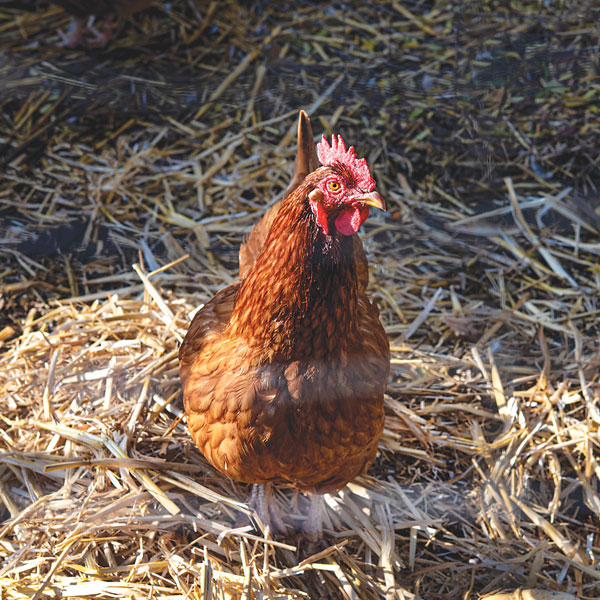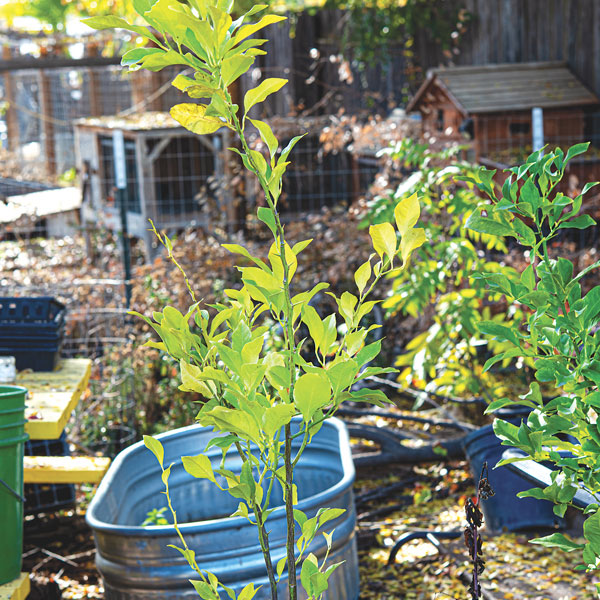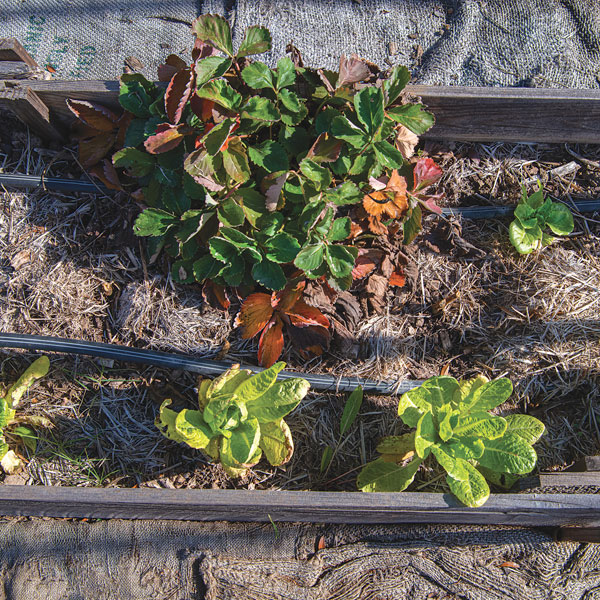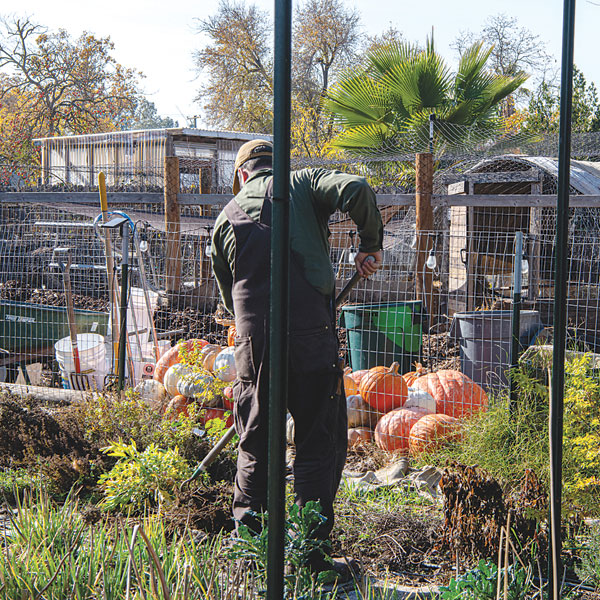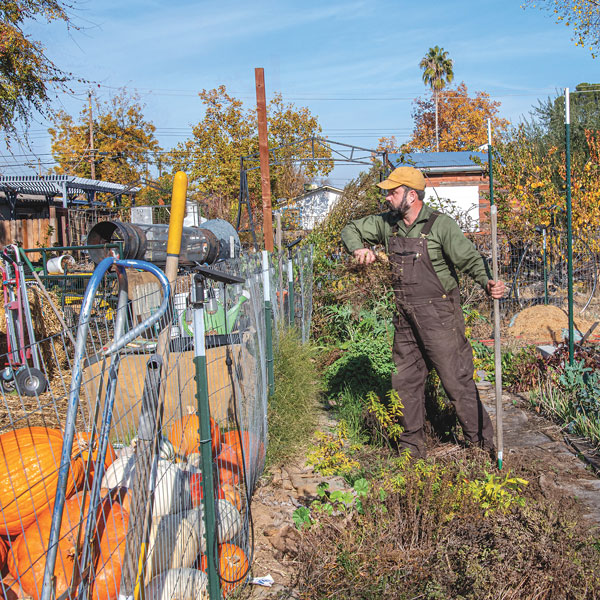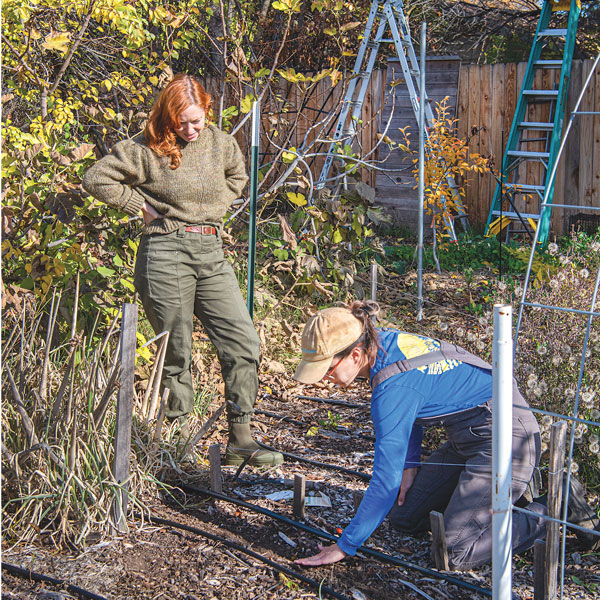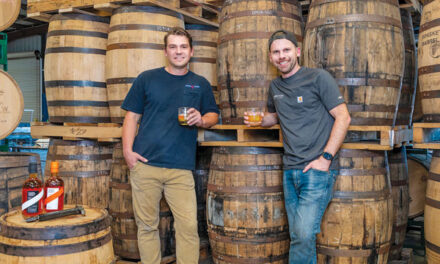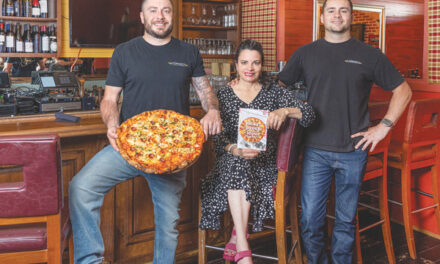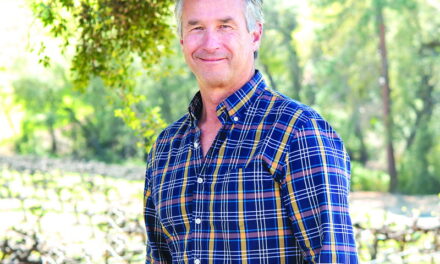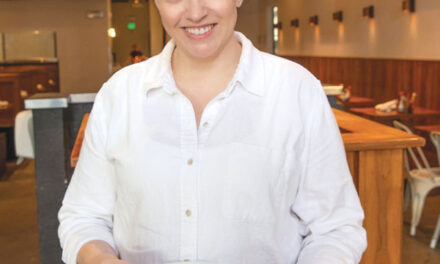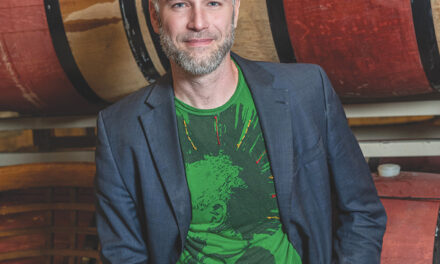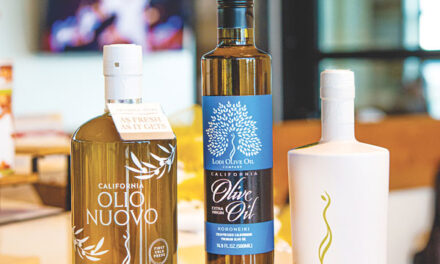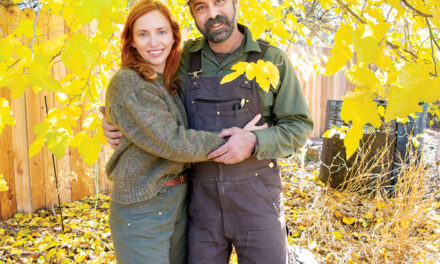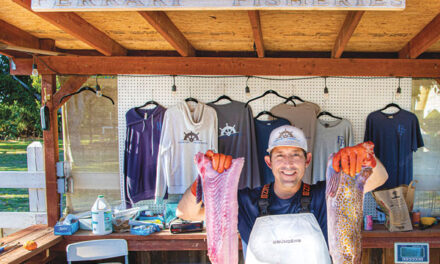Waste Not
They pick overlooked fruit to feed the hungry
By Gabrielle Myers
January 2024
Coming from the colder mid-Atlantic region, I was amazed by the valley’s ability to produce citrus and other exotic fruits, such as pomegranate and persimmon.
Then I saw juicy tomatoes smashed near highway exits, lemons and oranges moldy underneath their trees, plums dyeing sidewalks purple. So much abundance, so much waste.
Matthew Ampersand and partner Tessa D’Arcangelew Ampersand experienced the same shock when they arrived in town and noticed food rotting in plain sight.
They decided to do something about the broken cycles of nourishment. They founded the nonprofit Find Out Farms, along with Community Fruit, Community Compost and Pollinator Gardenworks.
“We live in South Oak Park, which is historically underserved,” Matthew says. “A lot of our neighbors are walking to the grocery store, and it’s a pretty long walk from where we are. We also, simultaneously in our neighborhood, on our street, saw fruit falling.”
Community Fruit harvests, gathers and distributes fruit that would otherwise go to waste. If residents are physically unable to harvest fruit from their trees, Community Fruit steps in, picks the fruit and gives any surplus to women and children at Wellspring Women’s Center and other local residents via the Neighbor Program.
The Neighbor Program distributes grocery boxes through a free food program at Shakur House in Oak Park and to a housing complex in North Highlands. Oranges, lemons, grapefruit and other fruit not taken get sent to River City Food Bank in Midtown.
“Tell everyone you see who has fruit falling from trees around town that you know there’s a better way and that fruit could go to the one in four people who are hungry in Sacramento County,” Matthew says.
Community Compost tries to compost food and yard waste without contamination from residues found in synthetic chemical compounds—so-called “forever chemicals” due to their inability to be broken down by our bodies and environment.
Matthew believes municipal compost is often contaminated with these chemicals after people throw pizza boxes and other coated cardboard containers in food and yard waste bins. Such chemicals can become compost for gardens and end up in streams and waterways.
With Community Compost, Matthew controls what goes into the pile. He ensures what comes out as usable compost is 100% clean and free of chemicals. Matthew picks up a significant amount of food waste from Wellspring, composts it and spreads the results around fruit and vegetable gardens.
Find Out Farms is an educational space where residents learn about native plants, composting and how to tend fruits and veggies. Topics include support for bumble bees, how salmon spawn and how local bats live.
The farm in South Oak Park is open from 9 a.m. to noon every Saturday to distribute free seeds, sell native plants, and answer gardening and landscaping questions. To continue its educational programs in the winter, the farm needs help building an awning and weather-protected area.
The Ampersands support their nonprofit work through donations and via their Pollinator Gardenworks consulting business. Tessa, a certified landscape designer, and Matthew, a California native plant certified landscaper, help clients create eco and pollinator friendly gardens.
When I asked Ampersand why he does this challenging and exhausting work, he says, “I’m incredibly selfish. If you do good work, then you get to feel good about it. I’m just a pleasure seeker, a joy seeker. I want to do good work so that I can feel happy all the time.”
For information, visit findoutfarms.com or stop by on Saturday morning.
Gabrielle Myers can be reached at gabriellemyers11@gmail.com. Her latest book of poetry, “Too Many Seeds,” can be ordered from fishinglinepress.com. Follow us on Facebook, Twitter and Instagram: @insidesacramento.


